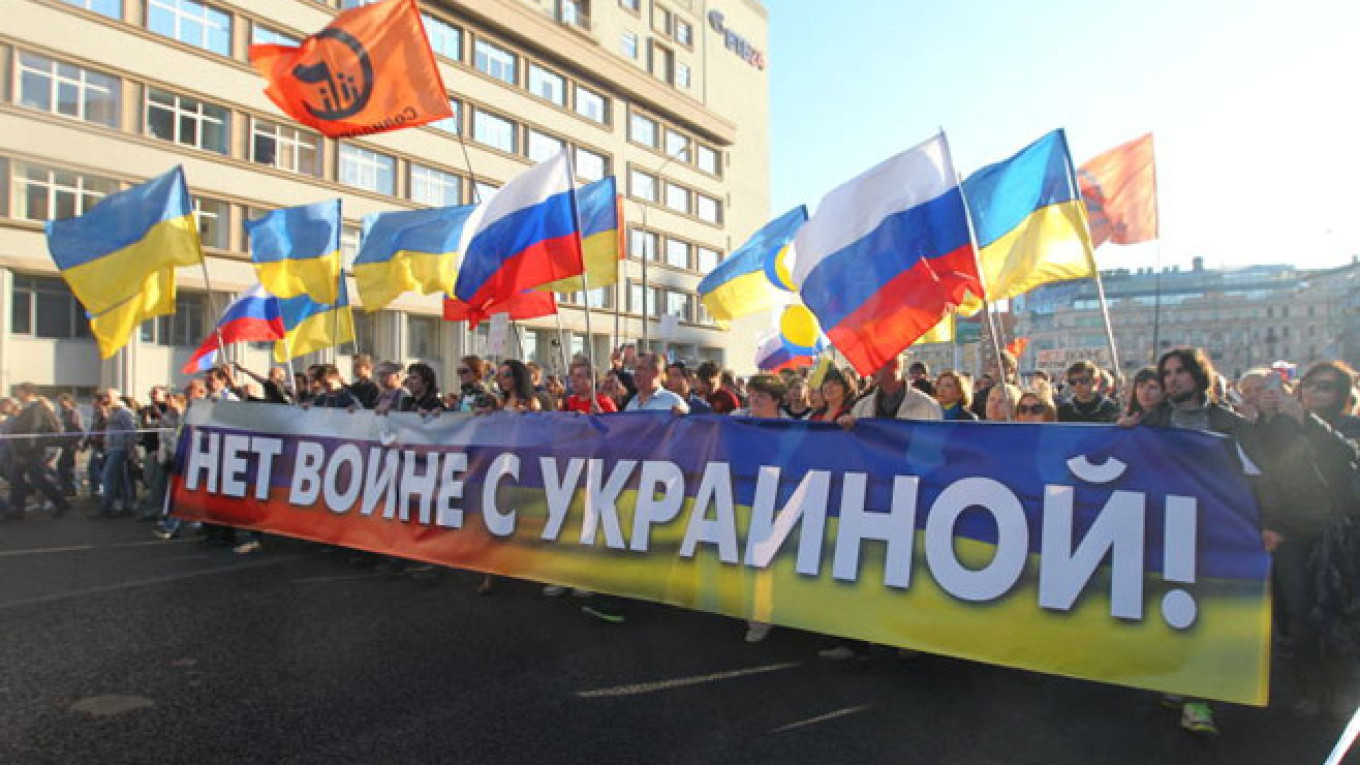With the Minsk II agreement stalled and EU sanctions tied to its full implementation, it is getting increasingly hard to see Moscow's endgame in Ukraine.
Minsk II contains a set of conditionalities that provided the Kremlin with non-lethal means to realize its objectives in Ukraine — a new constitutional setup that would give the Donbass republics a special status with a veto over Kiev's policies. But this will not materialize.
It was discernible from the outset that Minsk II was primarily a cease-fire agreement, while all the fancy stuff about the Bosnia-style changes to Ukraine's constitution was never going to be implemented. Moscow knew this as it insisted on returning the control over the border to Ukraine only after constitutional changes were made.
Ukrainian President Petro Poroshenko lacks the domestic support to implement the political parts of Minsk II that amount to dismantling the sovereign Ukrainian state. So he upstaged Moscow with a creative interpretation of the agreement that conditions the special status for the Donbass on free local elections held under Ukrainian law, effectively dead-ending Minsk II. Moscow's hope that the West will pressure Kiev to desist is futile.
Which leaves Russia with three options. One is to resume the military offensive to pressure Kiev to grant Russia's proxies in the Donbass the "special status" in a "confederate Ukraine." But the restart of combat operations, even if it did not directly involve regular Russian forces, would entail new Western sanctions with unpredictable impact on Russia's sputtering economy.
The second option would be to freeze the conflict for good and gradually build up the separatist enclaves into functioning unrecognized statelets with their eventual absorption into Russia. This could even result in a larger settlement were Kiev to legally abandon those territories while President Vladimir Putin leaves the rest of Ukraine alone, as he hinted a month ago. Some Western sanctions would be lifted.
The third option is to launch direct talks with Kiev to reach a comprehensive solution where Russia would withdraw its support for the separatists and allow Ukraine to restore its sovereignty in the Donbass while Kiev would agree to Russia's purchase of Crimea through debt forgiveness and energy subsidies, ending all Western sanctions.
Moscow's choice is between ending the conflict on reasonable terms and allowing it to drag the country down indefinitely.
Vladimir Frolov is president of LEFF Group, a government relations and PR company.
A Message from The Moscow Times:
Dear readers,
We are facing unprecedented challenges. Russia's Prosecutor General's Office has designated The Moscow Times as an "undesirable" organization, criminalizing our work and putting our staff at risk of prosecution. This follows our earlier unjust labeling as a "foreign agent."
These actions are direct attempts to silence independent journalism in Russia. The authorities claim our work "discredits the decisions of the Russian leadership." We see things differently: we strive to provide accurate, unbiased reporting on Russia.
We, the journalists of The Moscow Times, refuse to be silenced. But to continue our work, we need your help.
Your support, no matter how small, makes a world of difference. If you can, please support us monthly starting from just $2. It's quick to set up, and every contribution makes a significant impact.
By supporting The Moscow Times, you're defending open, independent journalism in the face of repression. Thank you for standing with us.
Remind me later.


